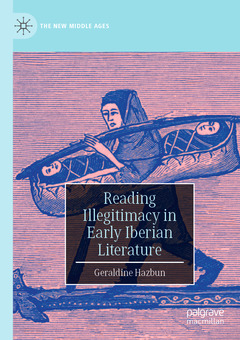Reading Illegitimacy in Early Iberian Literature, 1st ed. 2020 The New Middle Ages Series
Auteur : Hazbun Geraldine

Reading Illegitimacy in Early Iberian Literature presents illegitimacy as a fluid, creative, and negotiable concept in early literature which challenges society?s definition of what is acceptable. Through the medieval epic poems Cantar de Mio Cid and Mocedades de Rodrigo, the ballad tradition, Cervantes?s Novelas ejemplares,and Lope de Vega?s theatre, Geraldine Hazbun demonstrates that illegitimacy and legitimacy are interconnected and flexible categories defined in relation to marriage, sex, bodies, ethnicity, religion, lineage, and legacy. Both categories are subject to the uncertainties and freedoms of language and fiction and frequently constructed around axes of quantity and completeness. These literary texts, covering a range of illegitimate figures, some with an historical basis, demonstrate that truth, propriety, and standards of behaviour are not forged in the law code or the pulpit but in literature?s fluid system of producing meaning.
Chapter 1: The Scope of Illegitimacy.- Chapter 2: Epic Illegitimacy: the Cantar de Mio Cid and Las Mocedades de Rodrigo.- Chapter 3: Split Identity: Illegitimacy in the Romancero.- Chapter 4: Narrating Illegitimacy: the Novelas ejemplares.- Chapter 5: Lope de Vega’s Bastard Heroes: Pieces and Traces.
Geraldine Hazbun is Professor of Medieval Spanish Literature at the University of Oxford and Ferreras Willetts Fellow in Spanish at St Anne’s College, Oxford, UK. She is the author of Treacherous Foundations: Betrayal and Collective Identity in Early Spanish Epic, Chronicle, and Drama (2009) and Narratives of the Islamic Conquest from Medieval Spain (Palgrave Macmillan, 2015).
Date de parution : 11-2021
Ouvrage de 271 p.
14.8x21 cm
Date de parution : 11-2020
Ouvrage de 271 p.
14.8x21 cm



